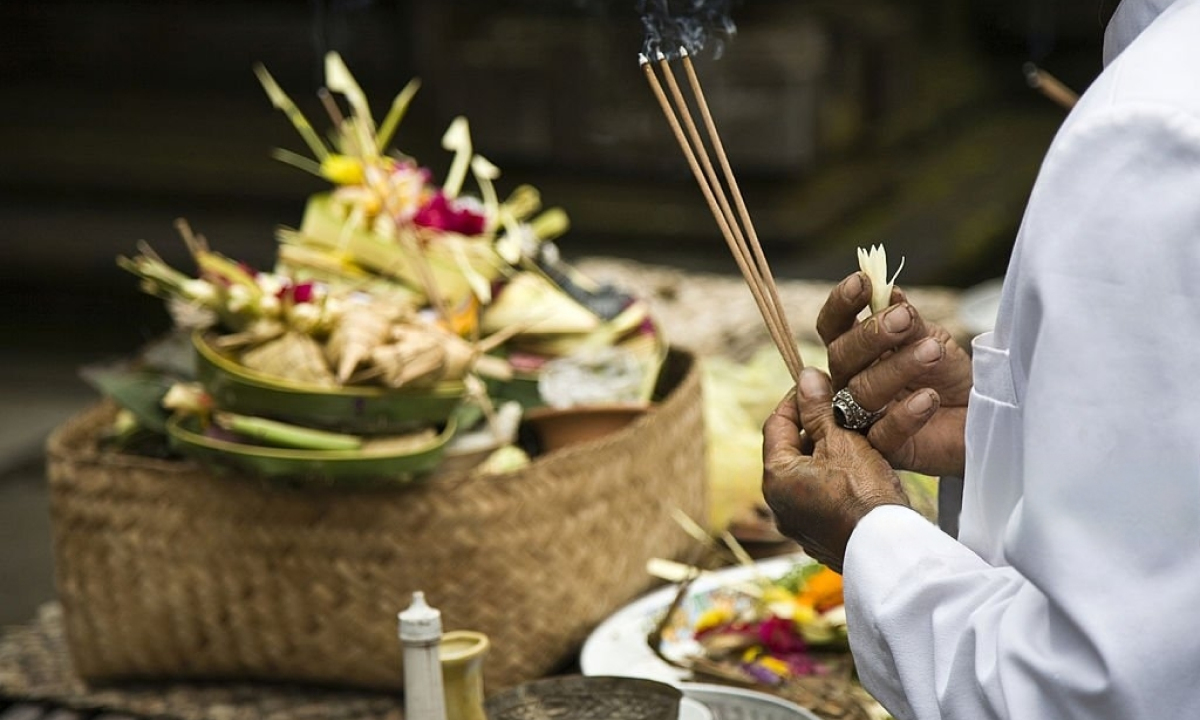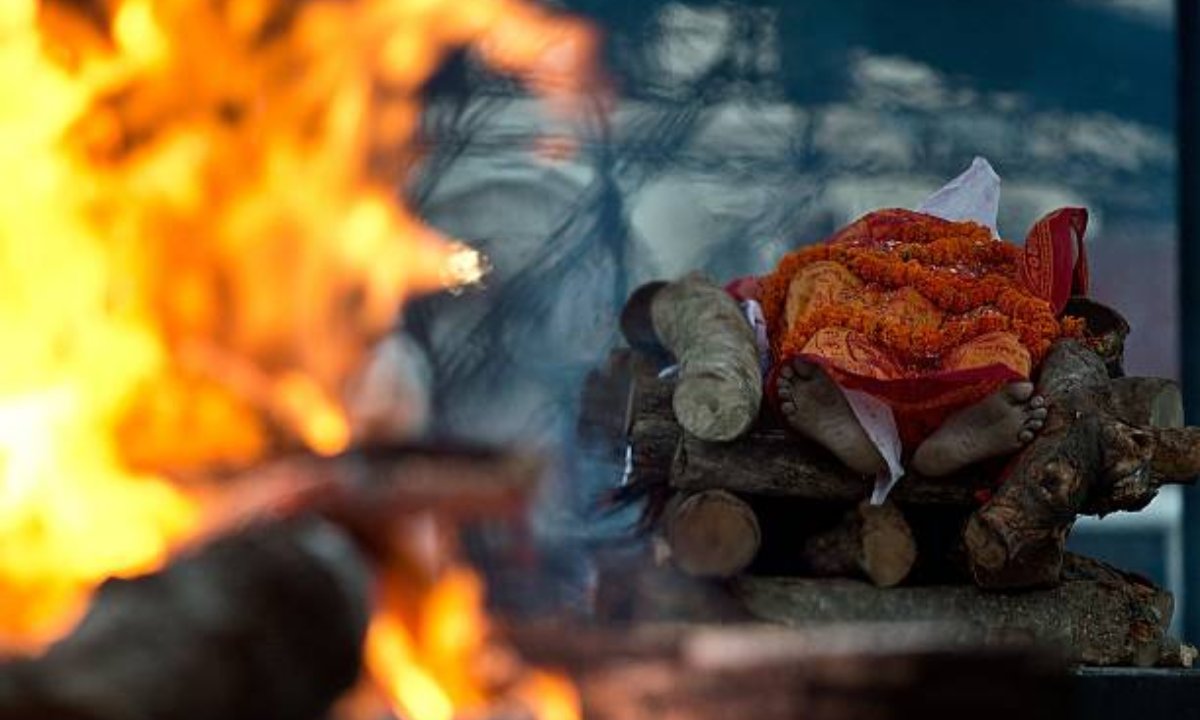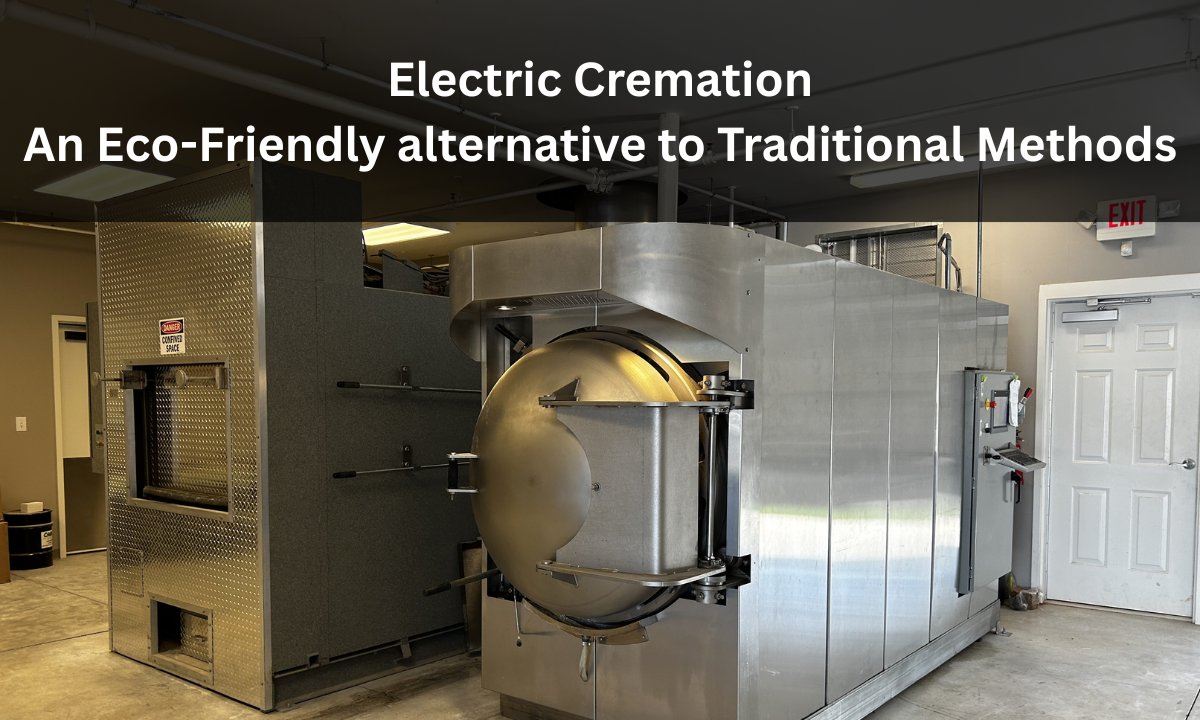The way Hindus view death and the rituals associated with it are very different from the traditions of Abrahamic faiths like Christianity, Judaism, and Islam. Here are 11 essential facts I have listed to understand the Hindu perspective on death:
1. The Hindu View of the Afterlife
The Hindu view of death is intrinsically tied to the concepts of rebirth, samsara (the cycle of reincarnation), and moksha (liberation). When a Hindu dies, rituals and mourning reflect these beliefs, which differ significantly from Abrahamic traditions.
The topic of atman – the eternal, immutable soul that is reincarnated into different physical forms through the cycle of life and death. Attaining moksha means the atman uniting with Brahman, the supreme abode of all souls.
The role of karma in determining the next rebirth – good karma leads to a more spiritually elevated birth, and bad karma determines a lower form. Funeral rituals help purify karma.
The relationship between the mortal body and the immortal soul – the body is just a temporary vessel for the undying atman that journeys through samsara.
2. Death is seen as a natural part of the soul’s journey
Unlike in Abrahamic faiths where death is often viewed as a punishment for sin, in Hinduism, it is seen as a natural part of the soul’s transmigration through different lifetimes and bodies as it seeks to achieve moksha or liberation from the cycle of rebirth. Death marks the end of one bodily experience and prepares the soul for rebirth into its next physical form.
3. The goal is attaining moksha or liberation
Moksha or liberation from the cycle of death and rebirth is seen as the ultimate goal in Hinduism. It represents the release of the soul from worldly suffering and its merging with the divine. Death brings a soul closer to this liberation as it sheds one physical form to take on another that will bring it closer to moksha, based on the karma accumulated in previous lives.
4. Cremation is the standard funeral practice
The usual practice in Hinduism is to cremate the body after death, as it is seen as destroying the old physical form to prepare the soul for rebirth. Cremation is believed to help further disconnect the soul from its previous body. The ashes are typically scattered in a sacred body of water like the Ganges. Exceptions are made in cases of untimely deaths or with very young children.
5. Funeral customs vary across Hindu communities
- While cremation is the norm, burial is not uncommon in some Hindu communities, especially in Southern India.
- The mourning period and post-death rituals can range from 11 to 16 days.
- For example, a ritual called sapindi karana is performed on the 12th day, where rice cakes are offered to the soul of the departed to mark the end of death rituals.
- Chants like the Mahamrityunjaya mantra may be recited to help the deceased attain sadgati or liberation.
- In some traditions, the eldest son performs the last rites.
- Regional and community customs prescribe varied specific rituals around Hindu funerals and mourning.
The body is typically cremated as soon as possible after death, reflecting the understanding that the soul has already departed the physical shell. As the body is seen as perishable and temporary, funeral rites are designed to help the soul continue its spiritual journey into the next life.
6. Reincarnation and karma shape views on death
Belief in karma or the results of one’s good and bad deeds, and reincarnation, or the recycling of the soul in different physical forms, shapes the Hindu view of death. Dying frees the soul from its current karma and allows rebirth into a new form where it can pursue new karma. Funeral rituals help transition the soul safely into its next incarnation.
7. Grieving expresses earthly attachments
While grief at a loved one’s passing is seen as natural, excessive grieving may be discouraged as it represents attachment to the deceased’s physical form which the soul has already shed. The goal is to wish the departed soul well on its spiritual journey and show restraint rather than prolonged mourning. Chants, prayers, and rituals are meant to assist the soul’s transition.
8. The Grieving Process
Coming to terms with grief – emotions are expressed freely but not excessively. Acceptance is sought through spirituality and closure.
Continuing bonds with the dead – the departed soul is still revered as part of the family. Ancestors are worshipped and remembered. Cultural traditions around bereavement – widowhood, mourning clothing, dietary restrictions, avoiding celebrations, etc.
9. Ancestor worship keeps connections alive
Hindus often continue bonds with deceased relatives through ritual offerings and prayers to ancestors (pitri). Food, flowers, and sweets may be offered by descendants to ancestors during rituals like Pitru Paksha – a 16-day period dedicated to ancestors near the autumn equinox. Ancestors are seen as actively protecting their living families.
This contrasts with say Catholic customs which focus on praying for the soul to find peace in the afterlife. Hindus believe the soul has been reincarnated, but can still receive offerings across the veil between life and death.
10. Hindu Scriptures on Death
- Scriptural basis for concepts like atman, reincarnation, moksha, karma, and rituals associated with death.
- Important Hindu figures like Yama, the god of death. Scriptural descriptions of what happens after death.
- Scriptural commentary on the goals of human life – dharma, artha, kama, moksha. Death’s role in the ultimate aim of moksha.
11. Regional Hindu Traditions and Customs
- Variations in funeral and mourning rituals across different regions, communities, and Hindu denominations.
- Differences between North and South Indian rituals, rural versus urban practices, etc related to death.
- Customs specific to certain communities – e.g. Varanasi’s death rituals, the Parsi Towers of Silence, etc.
- Assimilation of local and folk traditions into Hindu rituals over time across Asia.
- Changing traditions among diaspora Hindus across the world due to migration and globalization.
In summary, Hindus view death positively as a step towards the soul’s ultimate liberation and moksha. Rituals vary across regions but are designed to peacefully transition the soul into its next incarnation on its cosmic path. Death is not seen as an end but as part of the soul’s eternal evolution.
Believ and our experienced staff offer flexible cremation services 24*7 online & offline both. If you are looking for any specific type of funeral services then directly call on this no. 9901224122.





